
Ridley with recent collaborators Jace Fox, Renee Montoya, and Avigail Senna
John Ridley has a career that most writers rightfully envy. He’s a storyteller, and unlike many other writers, works regularly across various mediums.
As an author, John has written several novels, including Stray Dogs and The Drift. In television, he’s worked as a writer, producer, director, and showrunner on everything from sitcoms to dramas to animation including Static Shock, Third Watch, and Barbershop: The Series. As a creator, his shows include American Crime, Guerrilla, Godfather of Harlem and Five Days at Memorial.
In film, John has written (or co-written) such films as Three Kings, Undercover Brother, Red Tails, Jimi: All Is by My Side and 12 Years a Slave, for which he won the Academy Award for Best Adapted Screenplay.
Finally, in comics, John has written such iconic characters as Black Panther, Batman, The Question, Green Lantern, Black Lightning, and Superman. His latest book, GCPD: The Blue Wall, set in Gotham City is now available in Hardcover. John was generous enough to take some time out of his busy schedule to discuss his career, race in comics, and his latest work.
* * * * *
FOG!: Before establishing yourself as a crime novelist and screenwriter, you were mostly known for your work as a writer in situation comedy including Martin, The Fresh Prince of Bel Air, and The John Larroquette Show. What challenges did you face when switching to a different genre?
John Ridley: There’s always challenges, Hollywood back then and even now I think it remains hostile to people who are, outside the prevailing culture, women, people of color, people from the LGBT plus community. It’s a difficult space to navigate but I think because I could demonstrate that I could do different things and write in different ways, there was an opportunity to move in various spaces. I think sometimes individuals who just demonstrate great quality but maybe it’s more comedy, maybe it’s more straight drama, romantic comedy, genre, or whatever it is, that sometimes it’s a little difficult for them to transition to other things just because people really associate them with one type of writing.
Moreover, I think people were able to see that I could work in various genres and tell different kinds of stories in different ways.
You might be the only Academy-Award winning writer who has written comics. What about the comic medium appeals to you and what comics influenced you growing up?
Well, the first part of that question I mean what I appreciate is that it really is limitless storytelling, and a lot of Hollywood…they tend to not want to explore. There’s always a reason no or things like that and I just find in graphic novels, both on the page and in the process that people are really just more open-minded. It’s about fantasy, it’s about sci-fi, it’s about superheroes, it’s about possibility, it’s about wish fulfillment and that really needs to be central to all the storytelling. You know in Hollywood, there are some really interesting stories but look at how many of these stories really have cultural density that are coming from comic books, are coming from other sources, are coming from places where other people have already demonstrated why these fantastic ideas are worth anyone’s time and attention. So, I would just rather work in a space where once people are on board they’re completely on board…everyone is completely on board. And that’s to me is really really exciting and that’s just unfortunately not something in my opinion that you get enough of in traditional Hollywood.
Much of your work deals with crime, race, and finding justice for the innocent who need that. What writers have influenced you?
Well, I love Chester Himes as a writer I think that he always did a fantastic job of combining crime and race and amazing writing and terrific characters slightly differently from Raymond Chandler. [He] didn’t really deal with race obviously, but just [he’s] one of the great writers and great crime writers with such ease to his writing even though it’s a really really tough world that he writes in.
I just always loved you know the old hard-boiled writers and noir writers just because of their characters. The guys were so flawed…they were tough guys but they were tough because they could really take a punch. They weren’t necessarily great at throwing punches. Now, we live in a world where action heroes, not even superheroes, are just indestructible and nobody can stop them. There’s just a massive suspension of disbelief there and I’m not getting down on that story. People dig it but I really appreciate people who just bleed a little, hearts get broken, they don’t win every time, and the world is gray. If you talk about all the graphic novels and writers who I really like, I always loved The Question as a character because I just thought The Question was that flawed character that didn’t always win in the end, had very gray stories and I always thought those were terrific.
Your first comic at DC was the creator-owned The American Way which you followed up with the spectacular The Other History of the DC Universe which filled in the back stories of several established minority heroes. How did this project come together and how did you select the characters you profiled?
The folks at DC wanted to revisit The American Way which I thought was terrific. I really enjoy that series and I enjoy that it looks at a decade of American history but they’ve been separated. These series have come out a decade apart and to me, it’s just interesting to spend a decade growing as a person and seeing how I approach these characters a little differently and see how they age. I really love that the characters age because I think it’s really important in storytelling that there are consequences. The biggest consequence in life is that we age and we change our perspectives. We change and become more aware of our mortality and how every day is precious and things like that. That’s really important DC was like we’d really love you to do another series and we talked about a few things. And this was one of the things that I was really passionate about because I appreciate the history of the comic books that I was engaged with when I was younger. I appreciate these characters but there are often times that I definitely felt like I saw things differently than maybe some of the writers. Not in opposition to what they were doing, but there was a deeper meaning there that maybe even they were missing. Not just to the negative but to the positive things that writers who were writing about characters who were outside their lived experience were still trying to express something about race, gender politics, and ethnicity. I appreciated those efforts in those attempts but The Other History of the DC Universe was an effort to write between the lines.


The story, while I appreciate the efforts, is not quite in my opinion complete yet. It’s about seeing if I can help complete and inspire those stories and show where people may have fallen short, despite their best efforts. But they made the effort and they inspired people like me. I wouldn’t be here, I wouldn’t be having this conversation if I didn’t read comic books growing up as a kid. So, that’s really important to try to express in as many ways as possible my top love, admiration, and respect for the whole process of writing, creating, and dispensing graphic novels.
Your work at DC is notable as in much of it, it reimagines classic characters. Recently, you wrote a Batman series which focused on Lucius Fox’s son, Jace, who is the first African American Caped Crusader. The series was established without many of the tropes that audiences expect from the character. Do you think that this ultimately was well received or was Jace Fox’s presence in the DC Universe a hindrance to the Batman Legacy?


I mean that’s a it’s a very good question but I think that’s a question for other people now that they see it. When I talk to young people, particularly young people of color, and they’re really enthusiastic about Jace Fox about his story about the Fox family, that’s really all that matters. It’s important that these folks are inspired. Anybody outside the prevailing culture is often not included in comics. I would just say I’m not looking for permission one way or the other to tell the stories that I want to tell at the end of the day. The only people that I’m interested in pleasing are either people that I know intimately, which is my family, or the people who are writing the checks. Thus far, the people writing the checks are happy and my family is happy. If other people love it or hate it, I’m still gonna go out and do the things that I’m gonna do.
Your latest series, which is now out in a collected hardcover, is GCPD: The Blue Wall which follows three rookie cops entering the department after graduation and how woefully unprepared they are to be a cop in Gotham City. The challenges they each confront are certainly realistic, and in some ways tragic. Do you think that in today’s America, being a cop is thankless, in particular if they are a minority?


They are disproportionately negatively affected in health care as well and we saw that in the pandemic. I think it was Serena Williams, when she had her her baby, and she had complications, despite the fact that she’s one of the most recognizable accomplished individuals who couldn’t get the health care that she needed. She says that its origin is because she was a black woman and they’re just these biases that are baked into the system, and I agree with that.
So, I appreciate the difficulty of serving; I appreciate that when people serve, a lot of them understand that they’re going to be held to a higher standard. I’ve seen that and I’m seeing that in my family and I’ve seen that in people who I admire, appreciate, and respect.
To me, there’s that balancing act between as a person of color and knowing that there are biases in the system, particularly in police and law enforcement. I want to make sure that people understand how complicated these issues are because nothing is easy. Just saying the system is broken or all cops are racist you know, well, that’s not true either. Many things can be true at the same time.
With GCPD: The Blue Wall, I got the opportunity to write a story that is adult, mature, and grounded but is told in a space that is fanciful. Normally, it’s a challenging story and again I just have to give so much credit to DC. I appreciate the opportunity to tell these stories. God bless Superman but I just want to tell a really good Superman story. You’re chasing 80 years of great stories so for me to have this space is crucial. Then, Montoya has never really had a story quite like this; we don’t often get deep dives into the police officers in Gotham and what it’s like being an officer in general.
The lives of the three rookies, all become intertwined with longtime cop turned Police Commissioner Renee Montoya who is suffering from PTSD. What kind of research did you do and having written Montoya before in The Other History, what do you find appealing about her character?
The thing that I’ve always found appealing about Renee’s characters is I’ve seen her truly grow as a person going from the animated series where she was just a side character in a street cop to now where she is the commissioner of the Gotham City Police Department. I mean that’s quite an arc and that’s quite a journey and it’s a very real journey. She’s an individual who comes from a traditionally marginalized background and is someone who had conflict in her family, someone who has gone through self-discovery, and someone who has had addictions.


That’s just a really rich character because she’s real and again I appreciate graphic novels and I appreciate the fanciful nature, but you know this was going back to the question about Jace Fox and avoiding a lot of the tropes of graphic novel storytelling. Superhero storytelling…there’ve been a lot of great stories over the many many decades that these characters have been out there but it’s hard to be fresh. The characters don’t age, Superman’s pretty much the same, you got to tell stories that don’t well up. But the majority of those stories need to have a very specific DNA; they need to replicate in a very specific way and there’s a reason for that. I get that but to do this character Renee who’s just changed because she’s not so consequential and that’s what makes her really interesting. She’s real, she is so very real and I wanted to put other very real characters around her and write a story that seemed like it was very steeped in reality to me. That was the attraction and just really appreciate DC allowing me to have that opportunity.
I was fortunate to read the first issue of the first issue of The Ministry of Compliance. Although there’s no attempt to hide that it’s a science fiction story, I knew nothing about the book, and was somehow convinced that it was a spy thriller set in the near future until several revelations are disclosed and the setting and timeframe are established. When writing a project like this, do you envision it as an ongoing series, or does this story have a definitive end?


And IDW has just stepped up in a way with this book working with Stefano Raffaele with Brad Anderson again. I also worked with Ariana Maher who was doing the lettering. It’s just a great group and I want the book to do well for those who believe in myself and the story.
What was the genesis of this book and you’re working again with your GCPD:The Wall Role collaborator Stefano Raffaele. What strengths does Stefano bring to the project?
He’s just a terrific person, I mean he’s an artist and he does it because he loves drawing. He doesn’t do it necessarily because he just wants to be on the biggest superhero book. He even talked about how he stopped writing mainstream books for a while and worked on French graphic novels because he just felt like the creative space allowed him to reach his potential and engage in a style of drawing that he wasn’t being allowed to do as much. I don’t want to speak on his behalf but, I get that feeling of loving to do the mainstream stuff, but there are times you do want to do things that are more about the pure creative. What Stefano brings is his good nature and his talent and he’s a workaholic. I mean gets the work done and it’s beautiful and it’s elevated. I call him a maximum minimalist – there’s nothing extra in the panels, what’s there is necessary and it’s beautiful. Also, it goes effortlessly between the kinds of artwork that engage on a purely emotional level and also the kinds of artwork that can be hyper-specific. So, I was really fortunate to be paired with him for GCPD: The Blue Wall. I would have been lucky to write one graphic novel in my life. Now, to be in this space where I’m moving on to very personal creations like The Ministry of Compliance, I’m just really super fortunate
What do you have coming up next?
Well, that’s a good question. Other than my photography, I don’t have many other projects coming up. I’m getting to the point now where I really try to be more selective about the things that I’m doing. I’m very fortunate to be in a space. I have a film that I finished that’ll be coming out on Netflix at some point, called Shirley. However, the thing that really drives me is my photography. I love it and it’s just my creative passion right now. I have some other graphic novel work that I’m doing and that I really enjoy. So, between those two things, in particular, writing graphic novels and doing photography, those are the things that really fill me up creatively at the moment
GCPD: The Blue Wall and The Other History of the DC Universe Are Available Now
Ministry of Compliance #1 Arrives in Stores and via Digital on November 15th



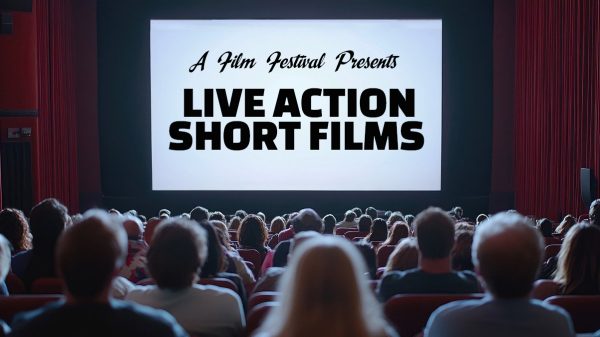



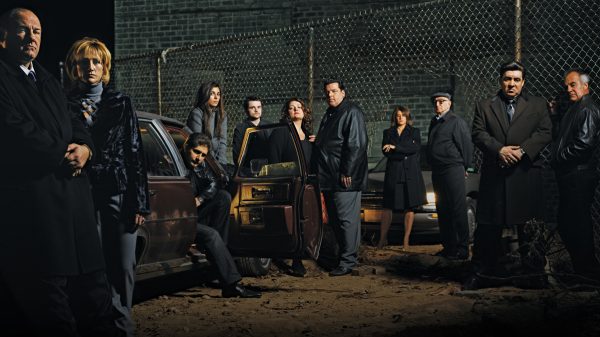
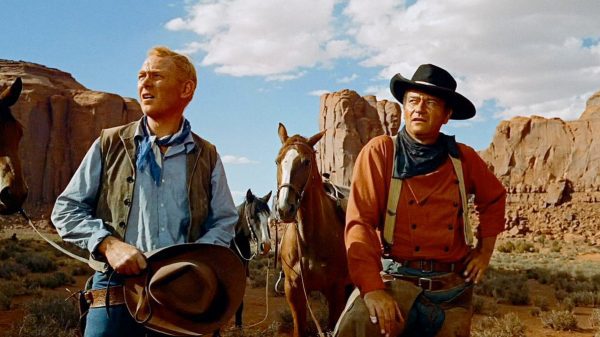


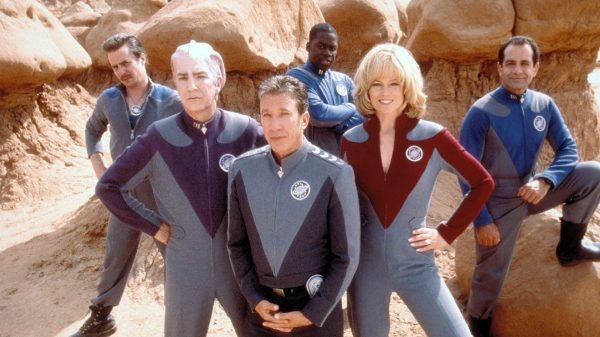
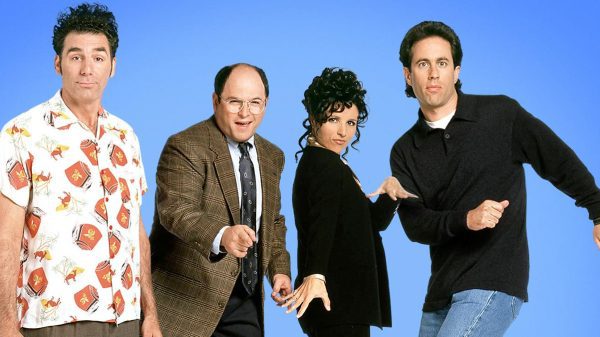


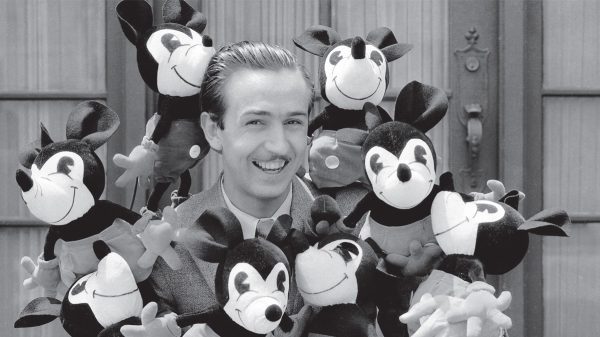


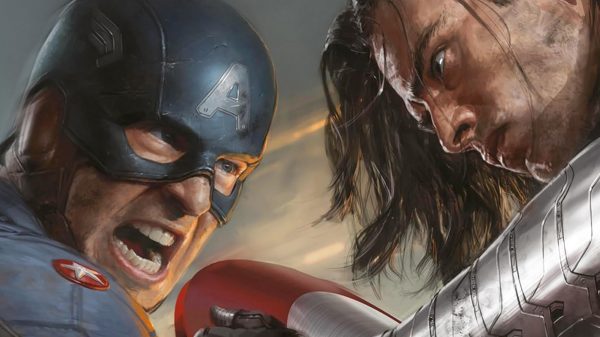




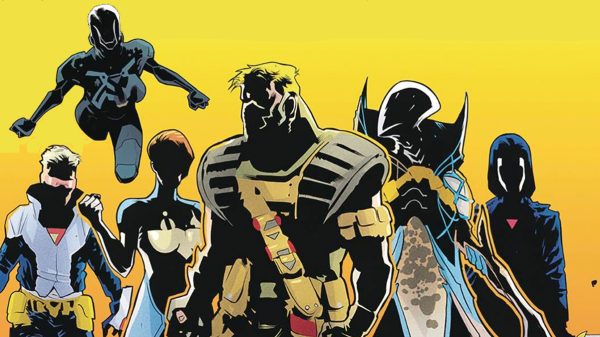
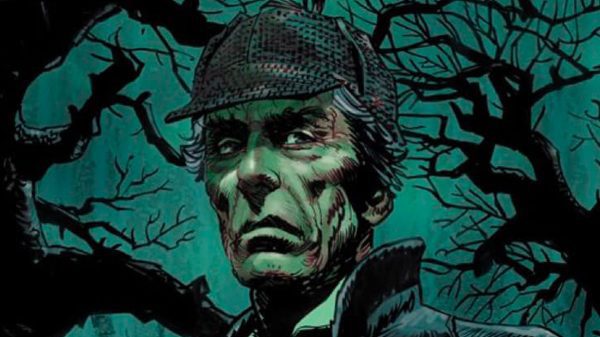
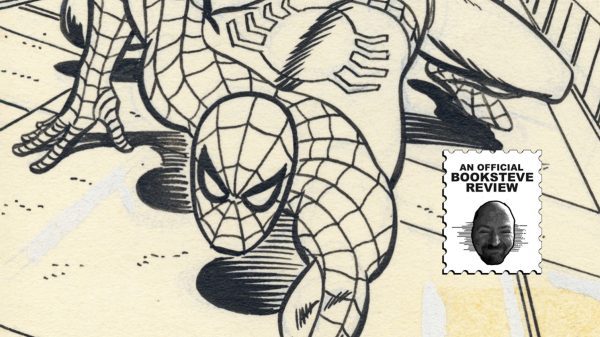
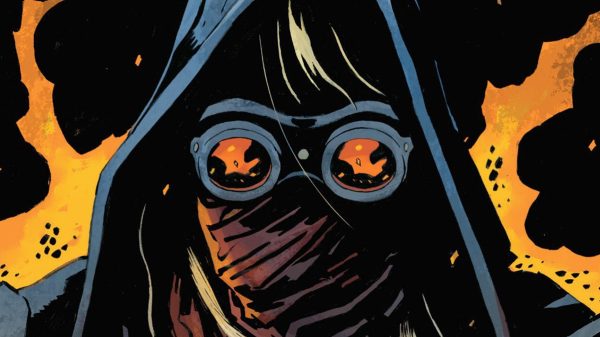





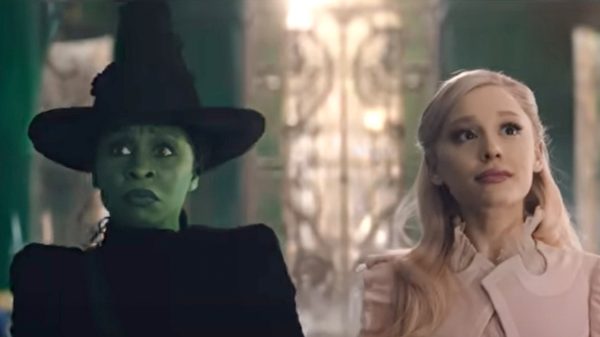
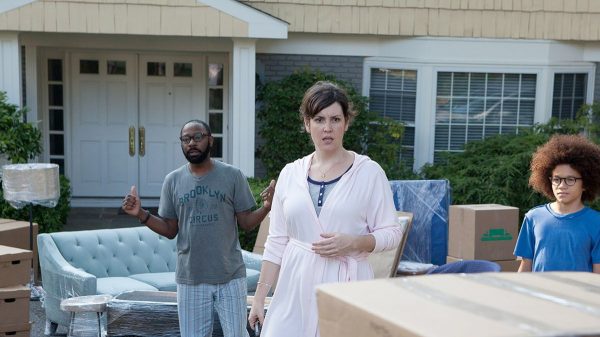
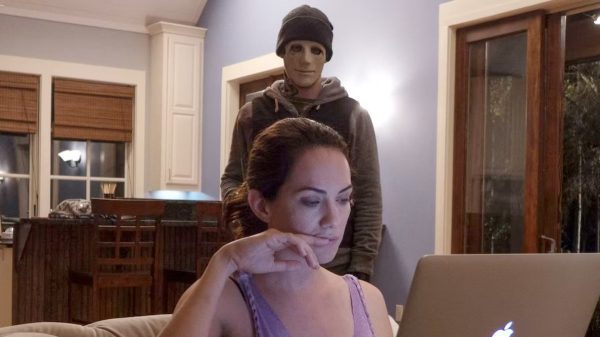












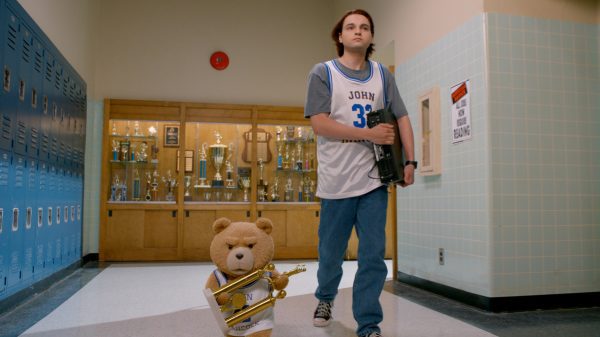
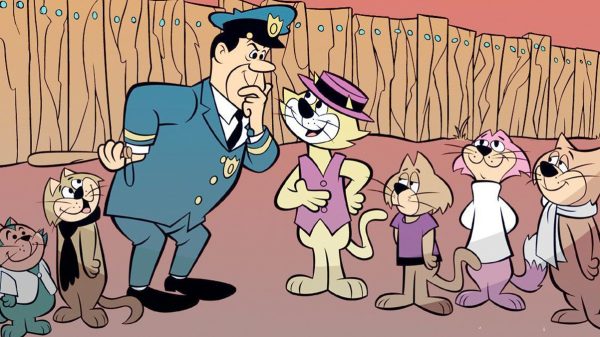
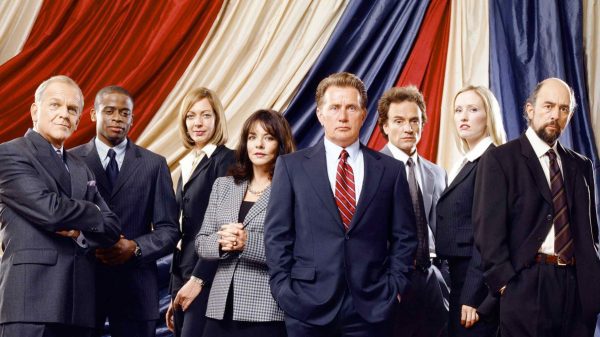
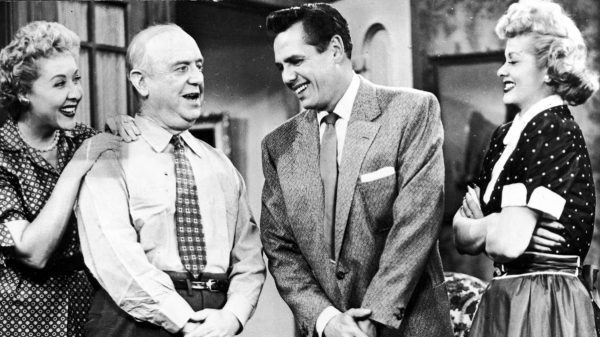
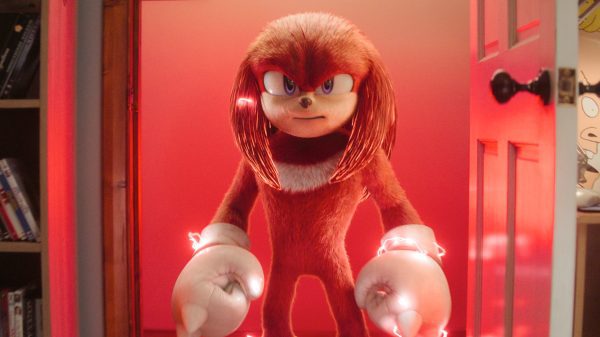


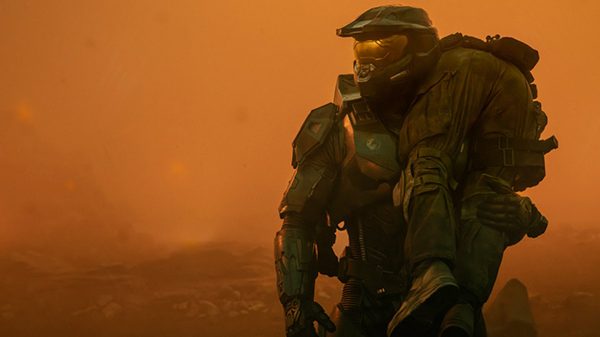
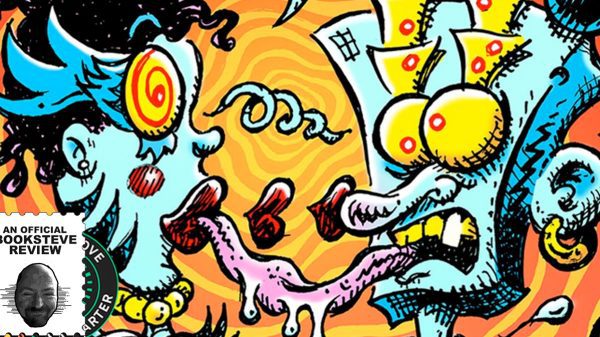

































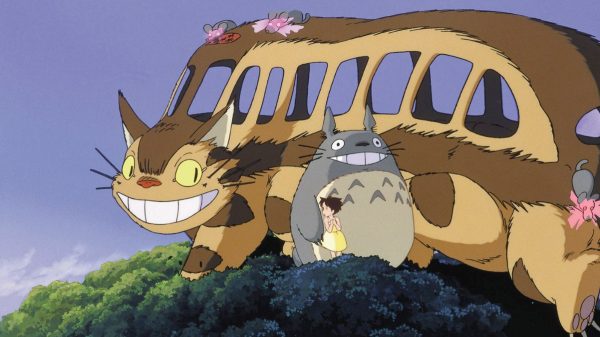
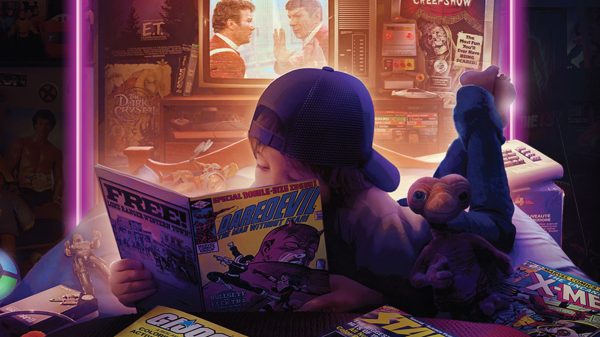
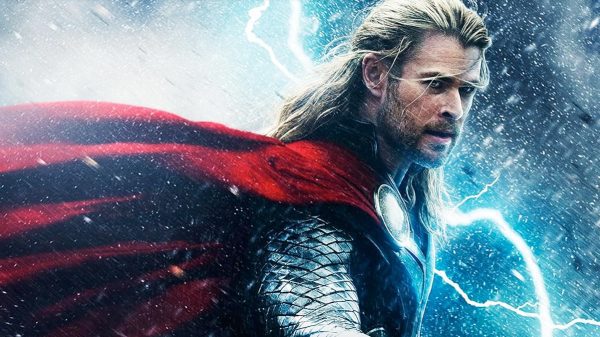









You must be logged in to post a comment Login